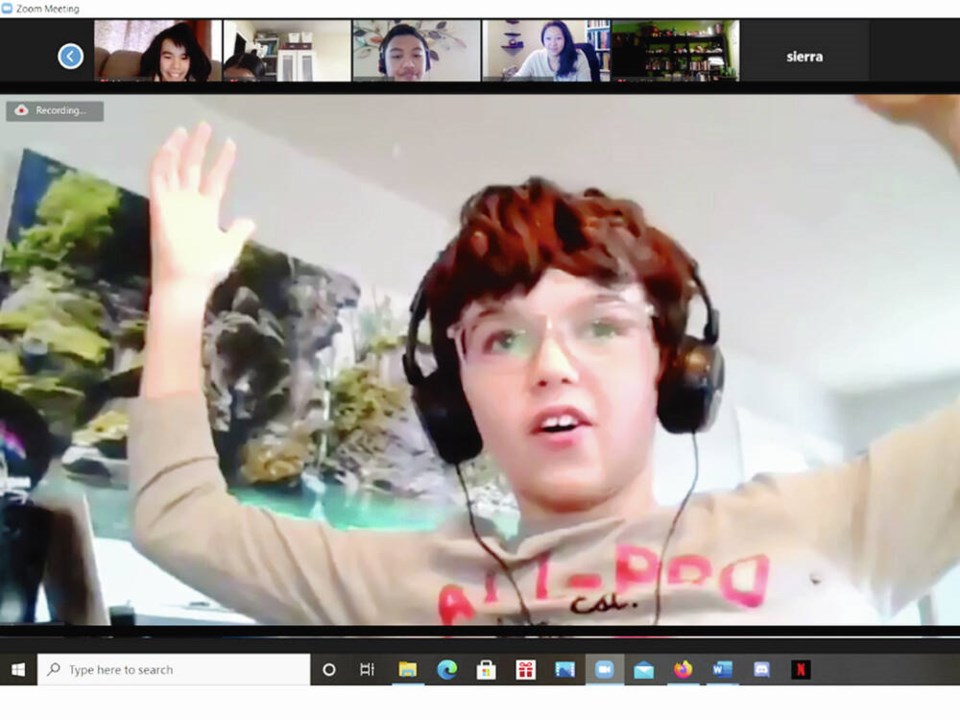While there’s no roasting of marshmallows at a virtual summer camp, the online version of the Easter Seals camp program is still a welcome lifeline for happy campers and their parents and caregivers.
The summer camp for Vancouver Island youth with cognitive and/or physical disabilities has traditionally been a week of activities and sleepovers at Easter Seals Camp Shawnigan. The campers, ages six to 49, got to meet new friends, renew old acquaintances and participate in a variety of outdoor sports designed for individuals with disabilities, including wheelchair sports and leadership training.
But when public-health guidelines over COVID-19 meant the cancellation of summer camps in 2020, organizers pivoted quickly, taking the camp and other programs online in a matter of months.
“We called it the Camp@Home program, with online classes, a virtual day camp in July and August and added winter and spring break camps as well,” said Dale Kilgour, who is assistant director of camp programs and facilities for Easter Seals B.C./Yukon. “We saw how the pandemic was isolating, especially for people with disabilities, and wanted to offer them a place where they could safely connect, laugh and play.”
The program, delivered by the same camp counsellors who ran the in-person camps, has exceeded expectations, with 230 participants signing up for the virtual summer camp in 2021. While that number is lower than the traditional in-person attendance, some of the first-time attendees are children who could not normally have made the journey to the physical camp due to their personal circumstances.
Keeping the camp going online has had a positive impact on the children’s overall mental health, according to Kilgour. Families would report on their children’s excitement and anticipation — and how they would count down the days before they would leave for camp.
The virtual camps were also a much-needed respite for families and caregivers, some of whom care for children with complex health challenges.
While a virtual camp can never fully replace an in-person camp, a survey of the online campers saw close to 80 per cent of them reporting an improvement in their independence, confidence and personal development skills.
Online classes were also introduced in 2021 and offered throughout the year, running Monday to Friday in the evenings. All-day fun camps operate on statutory holidays and during spring and winter school breaks. The sessions cover a variety of topics and subjects, introducing participants to art techniques, dance styles and fitness classes.
“One of the changes is that we now see some of our clients on a weekly basis, not just once a year,” said Kilgour.
She said that the most popular activity is the social club, where the children can make new friends or just hang out.
While the online classes are open to children and adults with disabilities between the ages of six and 49, a new Compass Program was also introduced in 2021 specifically targeting young adults with disabilities transitioning into adulthood.
The 12-week Compass Program, based on a curriculum developed by the Adoptive Families Association of B.C. for youth ageing out of government care, prepares participants between the ages of 16 and 25 for school, work, independent living and their transition to adulthood.
Funding through a Victoria Foundation Community Program grant enabled Easter Seals B.C./Yukon to provide programming for children and adults with disabilities in the CRD, including a Camp Shawnigan family camp weekend, Camp Shawnigan day camps, Victoria City Adventure Camps, as well as virtual Camp@Home sessions.



